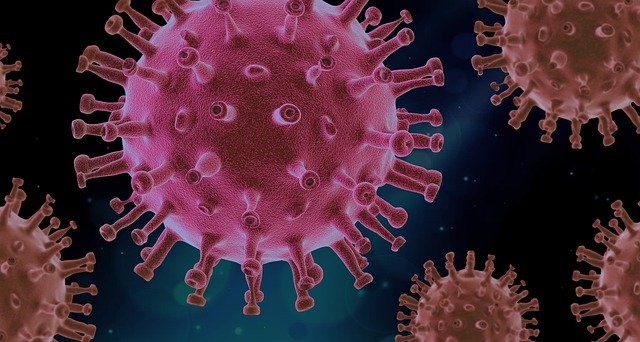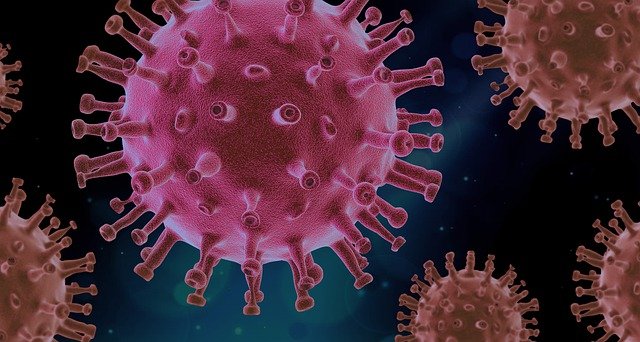- May 21, 2021
 COVID-19 invaded our world just over a year ago, and we continue to learn more about this infectious disease each day. While some test positive while being asymptomatic, others have mild to severe symptoms, which put them in the hospital or worse. Many have survived the infection and recovered completely, while others continue to experience long-lasting effects. If you survived COVID-19 but are still experiencing long-term effects of the infection, you may be wondering if you can get disability due to the Coronavirus (COVID-19).
COVID-19 invaded our world just over a year ago, and we continue to learn more about this infectious disease each day. While some test positive while being asymptomatic, others have mild to severe symptoms, which put them in the hospital or worse. Many have survived the infection and recovered completely, while others continue to experience long-lasting effects. If you survived COVID-19 but are still experiencing long-term effects of the infection, you may be wondering if you can get disability due to the Coronavirus (COVID-19).What Is COVID-19?

COVID-19 is the corona (CO) virus (VI) disease (D), first discovered in 2019 (19), and is a viral infectious disease. It's a respiratory infection that includes symptoms such as dry cough, fever, headache, body aches, sore throat, fatigue, nausea, diarrhea, conjunctivitis, and loss of smell or taste. Those who experience severe symptoms complain of chest pain or pressure, difficulty breathing or shortness of breath, and loss of speech or movement. COVID-19 takes an average of five to six days for symptoms to develop, and individuals are considered contagious for up to 14 days.
Who Are COVID-19 Long Haulers?
People infected with COVID-19 yet are still experiencing symptoms long past the 14 day infection period are being called long-haulers. Many long haulers continue to experience symptoms for weeks and months after they are no longer considered to be contagious. Other long haulers relapse with the same symptoms they had during their infection period or even new symptoms related to COVID-19.
Symptoms that COVID-19 long haulers report include brain fog, fatigue, weakness, chest pain, headaches, insomnia, persistent shortness of breath, dizziness, erratic heart rates, irregular blood pressure, and residual muscle and joint pain. Brain fog is one symptom that encompasses issues including word retrieval, short-term memory loss, difficulty in paying attention and concentration and becoming easily overwhelmed by simple tasks. Any one of these symptoms can cause long-term disability if they're severe enough.
What Is Long-Term and Short-Term Disability?
Long-term and short-term disability are types of insurance policies that provide income to employees who become unable to work due to an injury or illness. This insurance policy allows them to continue to meet financial goals and obligations, including paying their monthly bills and expenses. As essential as this insurance policy is, not everyone will take out short-term and long-term disability insurance if they were to become disabled.
Long-term disability insurance requires a monthly premium, which is typically taken out of your paychecks. This premium tends to fall between 1-3% of your income. Each policy is different, so it's essential to understand the definition of disabled according to your policy. If you become disabled according to that definition, you will receive benefits from your long-term disability policy, usually about 60% of your gross income. This benefit can last anywhere from two years up to retirement age, depending on the terms outlined in your policy.
Similar to long-term disability insurance, employees have the opportunity to purchase short-term disability insurance and have the premiums deducted from their paychecks. Short-term disability insurance, also called temporary disability insurance, covers injuries and illnesses that an employee is expected to recover from eventually and pays out for a limited time. This type of insurance would cover a broken hand, back surgery, or complications from giving birth. It also pays out approximately 60% of your gross wages, depending on your policy. However, it will only pay out for usually three to six months, sometimes up to one or two years.
What Is Social Security Disability Insurance?
Social Security Disability Insurance (SSDI) is a government program funded through payroll taxes that funds individuals with disabilities after they've earned a certain amount of work credits. Once an individual has received SSDI benefits for two years, they'll become eligible for Medicare, regardless of their age. SSDI also pays partial benefits to a spouse and children of the disabled person. SSDI has a mandatory five-month waiting period before benefits start and your monthly benefit will be determined by your earnings record, much like the Social Security retirement benefit.
Is a Disability Caused by the Coronavirus Covered?
The short answer to this is that it will depend on your plan, your coverage, and how much your insurance company wants to fight you on this one. COVID-19 and long COVID-19 are both relatively new illnesses, and scientists and medical doctors are scrambling to figure out the lasting effects of the coronavirus. This means that disability advocates are also scrambling to determine whether COVID-19 patients and COVID-19 Long Haulers should qualify for disability benefits.
What we're finding is that most short-term disability policies will cover the effects of COVID-19 and long-haul COVID-19. But, if you've been suffering from symptoms for longer than six months, it's time for you to apply for benefits under your long-term disability policy. Under either a short-term or a long-term disability policy, you must prove that you're unable to work due to your condition, whether that's an injury or illness. This proof will come through visits to your medical provider, documentation of any symptoms and their severity, and documentation of work missed due to your condition.
Depending on your policy, you may even have to prove that not only can you no longer perform your occupation, but you also cannot perform any other reasonable occupation.
Disability advocates believe that COVID-19 survivors should meet the standards outlined in most SSDI, short-term, and long-term disability policies. Initially, insurance companies and programs will probably deny any claims associated with COVID-19 because it's too new of a disease, with unsettled science, for them to accept it without further examination. Evidence and supporting documentation will be key factors in convincing an SSDI, short-term, or long-term disability insurance company or program to support your claims associated with COVID-19.
If you or a loved one are experiencing long-term effects from COVID-19, contact the knowledgeable team at Goodman Acker. With over 150 years of combined experience, our attorneys know how to fight for your rights and get you the compensation you deserve.

